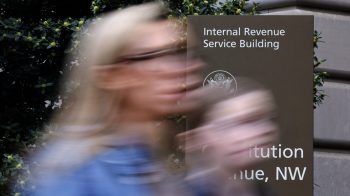TEXT OF COMMENTARY
KAI RYSSDAL: Today, Senate Banking Committee chairman Christopher Dodd invited Fed Chairman Ben Bernanke and Secretary Paulson to come on up to Capitol Hill sometime real soon. Dodd’s got his name on a plan to ease the mortgage crisis.
Commentator Robert Reich points out the bill addresses another issue too, whether taxpayers who pick up the tab for bailouts should profit if the gamble pays off.
ROBERT REICH: Such a deal. Bear Stearns’ shareholders get $10 a share instead of the $2 they thought they were going to get, because JP Morgan raised its offer.
And why did JP raise its offer? Because it wants Bear’s assets, theoretically valued at $30 billion, but worth less than that because they contain some junk loans that can’t be collected on, but of course no one knows how many bad loans, so JP is placing a big bet.
But it’s not really that risky a bet because if Bear’s assets contain more than $1 billion dollars of junk, the Fed makes up the difference. Which means you and I and every other taxpayer take a hit. If this bet pays off, JP Morgan’s shareholders make a bundle. If it doesn’t, they still may make lots of money, but we lose.
At least when Britain bailed out its biggest bank the government took its shares of stock, so British taxpayers get any upside gain if and when the shares are worth something again, but here in the good ole U-S of A, we believe in “socialized capitalism,” which means private investors reap the gains and taxpayers take the losses.
When Congress returns next week they’ll be voting on a plan that at least gives taxpayers some of the upside gains. The emerging Dodd-Frank bill would backstop investors who buy securities containing risky mortgage debts, as long as the investors restructure them to give homeowners a better chance of repaying. Yes, taxpayers bear the downside risk here, but if these securities become more valuable because homeowners in fact do repay, we share in the profits.
Now, this makes much more sense than the Fed’s bank bailouts. Our credit markets are a mess because it’s anybody’s bet how many bad loans are out there, but if government’s going to clean up this mess, American taxpayers should get a portion of the profits on bets that turn out good, in order to compensate us for bets that turn out bad. The idea is as American as apple pie: nothing ventured, nothing gained.
RYSSDAL: Robert Reich teaches public policy at the University of California Berkeley. His latest book is called “Supercapitalism.”
There’s a lot happening in the world. Through it all, Marketplace is here for you.
You rely on Marketplace to break down the world’s events and tell you how it affects you in a fact-based, approachable way. We rely on your financial support to keep making that possible.
Your donation today powers the independent journalism that you rely on. For just $5/month, you can help sustain Marketplace so we can keep reporting on the things that matter to you.


















